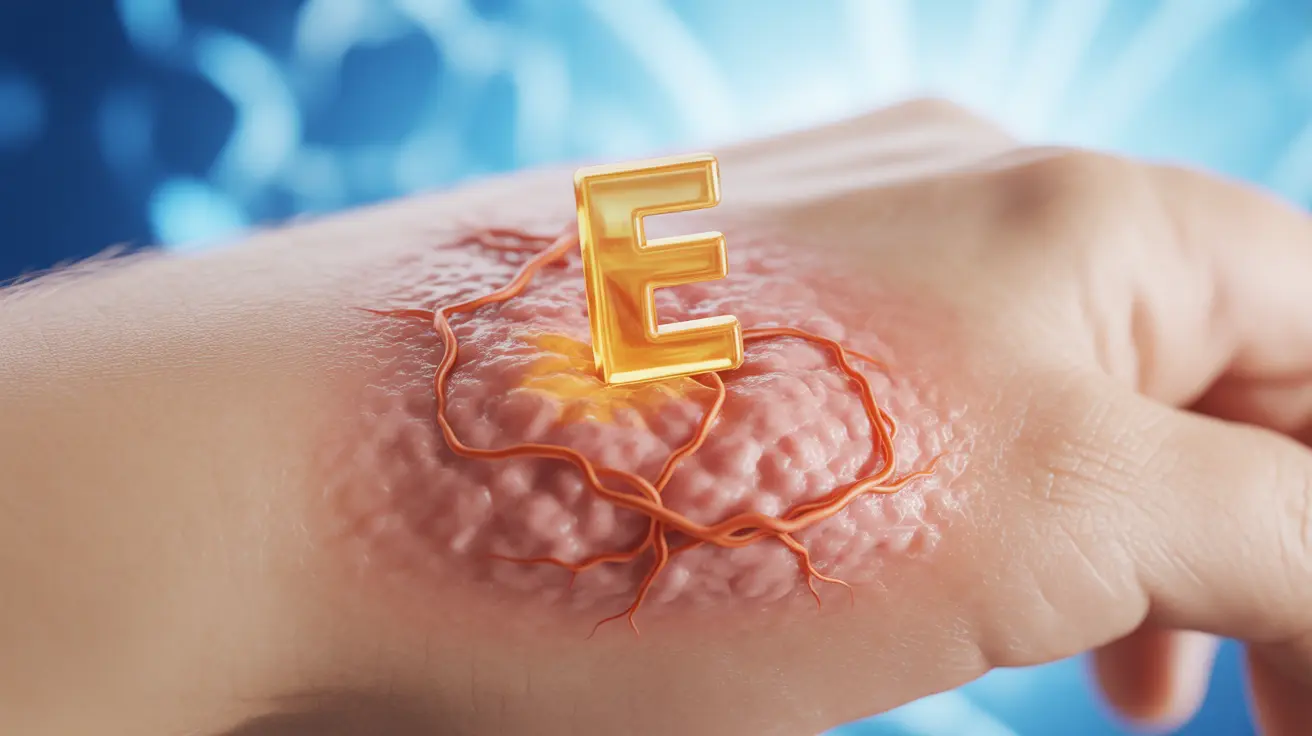For those struggling with eczema's persistent symptoms, vitamin E emerges as a promising natural option for skin health management. This powerful antioxidant offers both protective and healing properties that may help alleviate the discomfort and inflammation associated with eczema. Understanding how to properly use vitamin E for eczema can be crucial for achieving optimal results.
In this comprehensive guide, we'll explore the various ways vitamin E can benefit eczema sufferers, examine different application methods, and discuss important safety considerations to help you make informed decisions about incorporating vitamin E into your eczema management routine.
Understanding Vitamin E's Role in Skin Health
Vitamin E functions as a powerful antioxidant that helps protect skin cells from oxidative stress and environmental damage. Its natural anti-inflammatory properties can help calm irritated skin and support the skin's barrier function, which is often compromised in eczema patients.
The vitamin's moisturizing properties also help maintain skin hydration, a crucial factor in managing eczema symptoms and preventing flare-ups. Additionally, vitamin E supports skin cell regeneration, potentially helping to heal damaged skin more effectively.
Application Methods: Topical vs. Oral Supplementation
Topical Application
Topical vitamin E products directly target affected skin areas and can provide immediate moisturizing benefits. When choosing a topical product, look for:
- Pure vitamin E oil
- Creams or lotions containing vitamin E
- Combination products with other beneficial ingredients
- Products specifically formulated for sensitive skin
Oral Supplementation
Taking vitamin E supplements internally may help support overall skin health and immune function. This systematic approach can work alongside topical treatments to provide comprehensive eczema management benefits.
Safe Usage Guidelines and Dosage
When using vitamin E for eczema, it's essential to follow appropriate dosage guidelines to ensure safety and effectiveness:
Topical Application Guidelines
- Start with a patch test
- Apply to clean, slightly damp skin
- Use once or twice daily as needed
- Don't over-apply, as this may cause irritation
Oral Supplementation Guidelines
- Consult healthcare provider before starting
- Follow recommended daily allowance
- Monitor for any adverse reactions
- Consider potential interactions with other medications
Combining with Traditional Eczema Treatments
Vitamin E can be effectively integrated into existing eczema treatment plans. However, it's important to coordinate with your healthcare provider, especially when using prescription medications. This ensures safe combination and optimal results.
Frequently Asked Questions
How does vitamin E help reduce eczema symptoms and flare-ups?
Vitamin E helps reduce eczema symptoms through its antioxidant and anti-inflammatory properties. It protects skin cells from damage, reduces inflammation, and helps maintain skin moisture levels, which can prevent and minimize flare-ups.
What are the differences between using oral vitamin E supplements and topical vitamin E for eczema treatment?
Topical vitamin E provides direct, immediate benefits to affected skin areas, while oral supplements work systemically to support overall skin health from within. Topical application offers targeted relief, while oral supplementation provides long-term nutritional support for skin health.
Are there any risks or side effects associated with vitamin E use for eczema?
While generally safe, vitamin E can cause skin irritation in some people when applied topically. Oral supplements may interact with certain medications and can cause adverse effects if taken in high doses. Always start with a patch test for topical use and consult healthcare providers before starting supplements.
What dosage of vitamin E is recommended for improving eczema symptoms?
For topical application, use as directed on the product label, typically once or twice daily. For oral supplements, the recommended daily allowance for adults is typically 15 mg (22.4 IU), but specific dosage should be determined by a healthcare provider based on individual needs.
Can vitamin E be used alongside conventional eczema treatments like corticosteroids?
Yes, vitamin E can generally be used alongside conventional eczema treatments. However, it's important to consult with your healthcare provider first and maintain proper timing between different treatments to ensure optimal effectiveness and prevent potential interactions.




